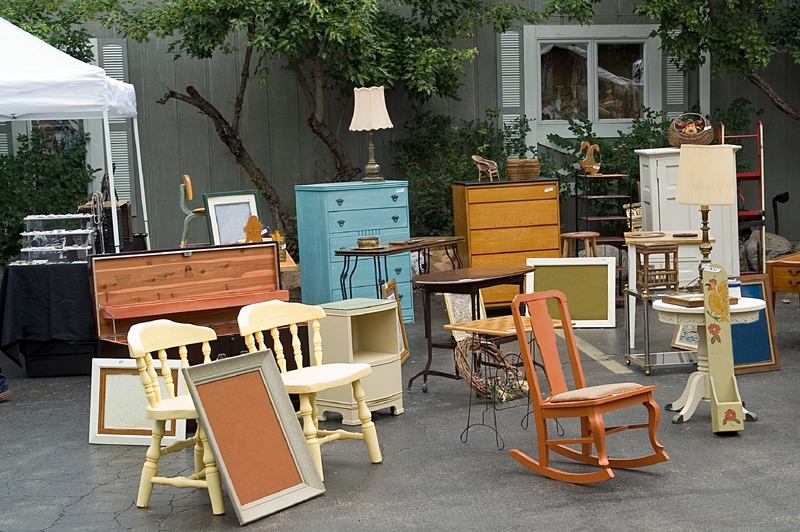Easy and Economical Upcycling for Beginners: Transform Old to Gold
Upcycling has become increasingly popular as individuals seek creative ways to minimize waste, save money, and personalize their living spaces. If you're new to the concept, upcycling refers to taking discarded or unwanted items and giving them a new, often more valuable, purpose. This beginner-friendly guide will introduce you to easy and budget-friendly upcycling projects, ensuring you start your sustainable journey with confidence, creativity, and minimal cost. Whether you want to revamp your home decor, fashion accessories, or everyday items, upcycling is a fantastic way to unlock both utility and beauty.
What is Upcycling?
Before diving into upcycling for beginners, it's important to understand what upcycling means. Upcycling, sometimes known as creative reuse, is the process of transforming by-products, waste materials, or unwanted goods into new materials or products of higher quality or environmental value. It's not only environmentally friendly but also extremely rewarding--perfect for anyone who enjoys crafting or wants to save money through DIY projects.
How Upcycling Differs from Recycling
- Recycling breaks down materials to their base form and re-manufactures them into new items.
- Upcycling repurposes an item to give it a second life, often with minimal processing.
Upcycling reduces the need for new raw materials and lowers your environmental footprint.

Why Choose Upcycling? The Benefits for Beginners
- Cost-Effective: Most upcycling projects use materials you already own or can obtain cheaply.
- Eco-Friendly: Less waste goes to landfill, and fewer resources are consumed.
- Creative Expression: Design custom pieces tailored to your style.
- Skill Development: Learn practical skills and discover new hobbies.
- Personal Satisfaction: Gain a sense of achievement by creating rather than buying.
Beginners can start with easy upcycling projects, achieving big environmental impact with minimal experience. Even simple projects offer huge satisfaction and can ignite a passion for sustainable living.
Getting Started: Essential Tips for Upcycling Success
Starting your journey in affordable upcycling doesn't require professional tools or artistic expertise. Here are some practical tips to help you launch your first projects:
- Start Small: Pick beginner projects such as jars, tins, or old clothes before tackling furniture or electronics.
- Gather Basic Tools: Simple tools such as scissors, glue, paint, and sandpaper are usually enough to begin.
- Search for Materials: Hunt for items to upcycle in your home, thrift stores, garage sales, or community swaps.
- Find Inspiration: Social media, upcycling blogs, and websites like Pinterest offer countless creative ideas.
- Plan Your Project: Sketch your design and list required materials to avoid frustration and waste.
- Have Fun! Don't worry about perfection--enjoy experimenting and learning.
10 Easy and Economical Upcycling Project Ideas for Beginners
If you're looking for simple upcycling ideas on a budget, these beginner-friendly projects are perfect. Each uses minimal tools and inexpensive or free materials.
1. Glass Jars into Storage Containers
- Materials: Clean glass jars, acrylic paint, labels, or twine.
- Tip: Paint jar lids or tie twine for a rustic look. Use as organizers for spices, buttons, or craft supplies.
2. T-Shirts into Tote Bags
- Materials: Old t-shirts, scissors, basic sewing kit (or no-sew glue).
- Method: Cut and knot the bottom for no-sew totes or stitch for durability.
3. Wooden Pallets into Furniture
- Materials: Used wooden pallets, sandpaper, nails, paint or stain.
- Projects: Build garden planters, bookshelves, or outdoor benches.
4. Tin Cans into Plant Pots or Lanterns
- Materials: Washed tin cans, hammer and nail (for drainage holes), paint.
- Notes: Add candles to make lanterns or use to grow herbs on your windowsill.
5. Wine Corks as Bulletin Boards
- Materials: Wine corks, glue, picture frame.
- How-To: Glue corks into the frame to form a handy memo board.
6. Old Sweaters into Pillow Covers
- Materials: Old sweaters, scissors, needle and thread (or sewing machine).
- Instructions: Cut panels, sew sides, and slip over existing pillow forms.
7. CDs and DVDs as Mosaic Art
- Materials: Old discs, scissors, glue, picture frame or canvas.
- Process: Break discs carefully and arrange shiny pieces into patterns or images.
8. Drawers from Old Dressers as Shelves
- Materials: Unused drawers, paint or wallpaper, wall mounting hardware.
- Result: Unique wall shelves with built-in character.
9. Jeans into Denim Organizers
- Materials: Old jeans, scissors, glue or sewing kit.
- Project: Use pockets as wall organizers or pencil holders.
10. Broken Dishes into Garden Stepping Stones
- Materials: Broken china, concrete or plaster, molds (can be plastic trays).
- Steps: Arrange pieces in a pattern and fill with concrete to create colorful garden stones.
Where to Find Upcycling Materials
One of the key aspects of economical upcycling is sourcing materials inexpensively. Here are great places to look:
- Your Own Home: Old clothes, jars, boxes, unused furniture.
- Thrift Stores: Cheap finds perfect for repurposing.
- Garage Sales & Flea Markets: Uncover treasures at low prices.
- Online Marketplaces: Check platforms like Freecycle, Facebook Marketplace, Craigslist for free or cheap items.
- Community Swaps: Swap items with friends or neighbors for fresh project materials.
Tip: Always ask friends, family, or neighbors before discarding their items--they might be happy to donate.
Step-By-Step: Your First Simple Upcycling Project
How to Upcycle a T-shirt Into a Stylish Tote Bag
- Choose a T-shirt with fun designs or graphics for extra flair.
- Lay the Shirt Flat and cut off the sleeves and neckline to create handles and an opening.
- Turn the Shirt Inside Out and stitch or tie the bottom hem closed. If you don't sew, tie with fabric strips for a no-sew version.
- Turn Right Side Out and enjoy your handmade tote--perfect for groceries or books!
This beginner-friendly project demonstrates how easy and economical upcycling for beginners can also be practical and rewarding!
Tips for Successful and Safe Upcycling
- Clean Thoroughly: Ensure all materials are clean--especially glass, fabric, and containers.
- Use the Right Tools: Simple tools (like glue guns or basic sewing kits) work for most projects, but always follow safety instructions.
- Ask for Help: Some projects may require an extra pair of hands, especially with larger items.
- Ensure Stability: When upcycling furniture, make sure items are sturdy and safe for use.
- Follow Any Painting or Finishing Advice: Use non-toxic paints or finishes, especially for kitchen items or children's projects.
Frequently Asked Questions about Easy and Economical Upcycling
Can I upcycle without any crafting experience?
Absolutely! Many beginner upcycling projects need only basic skills. With online tutorials and community forums, you can easily learn everything you need along the way.
Is upcycling expensive?
Not at all. Budget upcycling starts with repurposing items you already own or can get for free. Costs can be kept minimal, focusing on time and creativity rather than expensive supplies.
Do I need to buy special tools or equipment?
Most simple upcycling projects use household items: scissors, glue, paint, or needle and thread. If you continue with more complex projects, you might invest in some basic crafting tools.
What if I make a mistake?
Mistakes are part of the process--sometimes they even lead to unique, creative solutions. Embrace the learning curve and have fun experimenting!
Creative Variations: Taking Your Upcycling Further
Once you're comfortable with easy and economical upcycling projects, you can try customizing your techniques:
- Combine Materials: Mix fabrics, wood, and metal for mixed-media pieces.
- Personalize with Paint: Stencils, spray paint, or hand-painting can transform any upcycled item.
- Add Decorative Touches: Beads, ribbon, wallpaper, or decoupage make projects unique.
- Involve Friends or Family: Upcycling nights or workshops are creative, budget-friendly bonding experiences.
The Environmental Impact of Upcycling
By choosing upcycling for beginners, you're making a positive environmental difference. Some powerful benefits:
- Diverting Waste: Upcycling keeps functional materials out of landfills.
- Reducing Carbon Footprint: Manufacturing new products requires more energy and resources than creative reuse.
- Promoting a Circular Economy: Your upcycled items can eventually be re-upcycled or recycled at the end of their useful lives.

Upcycling and Community: Sharing Your Creations
Share your upcycling achievements with others! Post your easy and economical upcycling projects on social media, family group chats, or in local community groups.
- Inspire Others: Your creativity can motivate friends and family to rethink waste.
- Trade and Sell: Online platforms allow you to swap or sell upcycled projects, often at a profit.
- Host Workshops: Teach others and build a local sustainability movement.
Final Thoughts: Upcycling is for Everyone
Upcycling doesn't require a big budget, artistic flair, or professional equipment. With a bit of imagination, anyone can turn 'trash' into treasure, cut down on waste, and contribute to a healthier planet. Start small, experiment with upcycling for beginners, and watch as your creativity--and confidence--grow. Every item you upcycle is a positive step towards a more sustainable future.
Ready to Start? Grab a forgotten item from your home and give it a new life--one simple, affordable, and creative project at a time.



